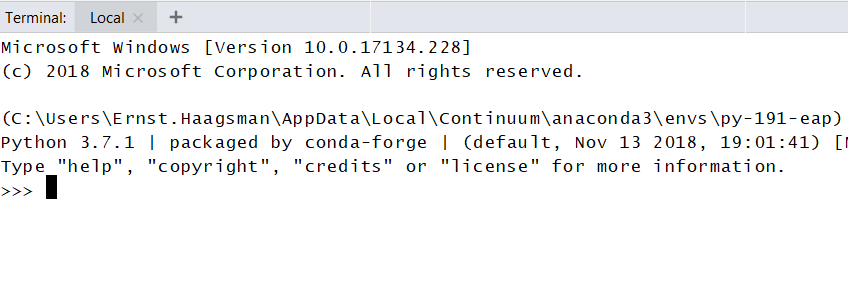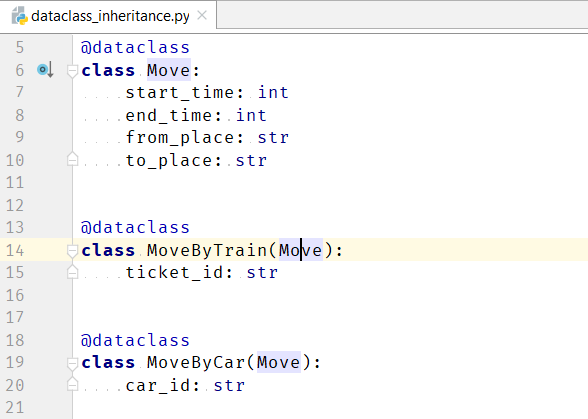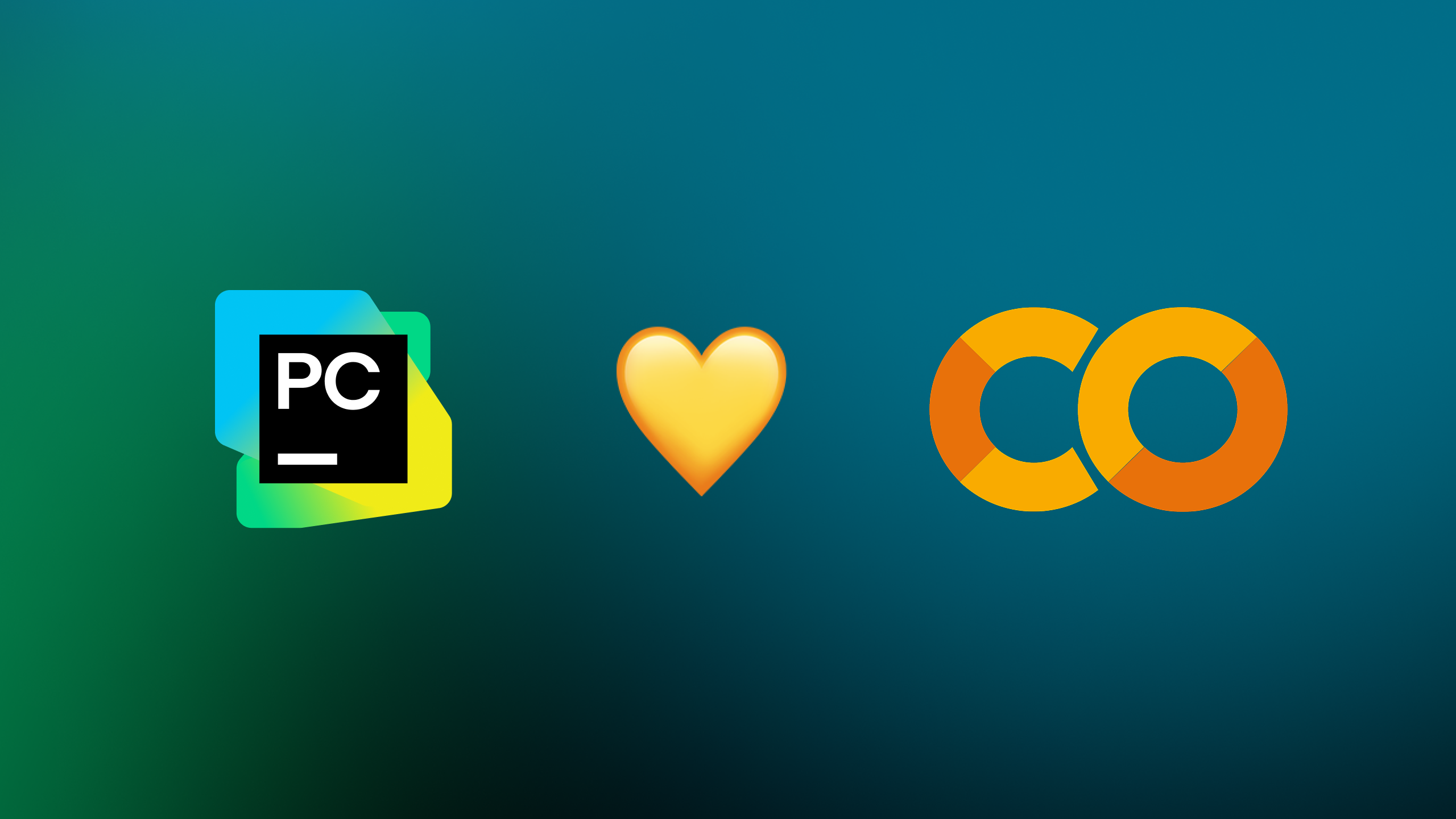PyCharm 2019.1 EAP Starts Now!
PyCharm development continues! As we are working on PyCharm 2019.1, we’d like to invite you to try what we’ve worked on so far. Our EAP helps you to try new features before they’re in the stable release, and you can help us by letting us know how we’re doing.
New in PyCharm
Conda Environment Activation in the Terminal
We hope that most of you have already seen this feature for virtualenvs and pipenvs. In PyCharm 2019.1, this is also available for those of you who use Conda environments. Open the built-in terminal (Alt+F12), and immediately run any CLI tools that are available in your project’s conda env, we’ve already activated it for you.
Dataclass Inheritance
Dataclasses are a Python 3.7 feature that made development of simple classes a lot easier. In cases where you have many alike objects, inheritance is a great way to adhere to the DRY (don’t repeat yourself) principle. PyCharm now correctly provides code completion for inherited dataclasses.
Not on Python 3.7 yet? Code completion is also available for inherited classes that use the attrs library.
PyPI Package for Remote Debug Server
If you’d like to debug your code, but you can’t use a remote interpreter, the remote debug server option is there for you. For example, this allows you to debug an application served through uWSGI.
Up until now, it was necessary to manually copy a .egg file to the remote host and ensure it’s on the PYTHONPATH. We’ve added an additional option: you can install `pydevd-pycharm` from PyPI to get the necessary prerequisites for this style of debugging. See the docs for more information.
Further Improvements
- PyCharm now allows the creation of Python 3.7 Conda environments
- There was an issue that prevented the execution of any remote process that needs elevation after an empty sudo password was mistakenly saved. This issue has been resolved.
- Various usability issues related to multiline TODOs were fixed
- And much more, see the release notes for details.
Interested?
Download this EAP from our website. Alternatively, you can use the JetBrains Toolbox App to stay up to date throughout the entire EAP.
If you’re on Ubuntu 16.04 or later, you can use snap to get PyCharm EAP, and stay up to date. You can find the installation instructions on our website.
PyCharm 2019.1 is in development during the EAP phase, therefore not all new features are already available. More features will be added in the coming weeks. As PyCharm 2019.1 is pre-release software, it is not as stable as the release versions. Furthermore, we may decide to change and/or drop certain features as the EAP progresses.
All EAP versions will ship with a built-in EAP license, which means that these versions are free to use for 30 days after the day that they are built. As EAPs are released weekly, you’ll be able to use PyCharm Professional Edition EAP for free for the duration of the EAP program, as long as you upgrade at least once every 30 days.
PyCharm 2018.3.4 RC
If you’d like to take a more conservative approach, and you’d only like to try important bugfixes, we’re also presenting the release candidate for PyCharm 2018.3.4. Bugs fixed:
- Pasting a new name over a variable that was defined right after an indented block, would cause PyCharm to incorrectly indent the variable. See PY-22563.
- In some cases inserting a newline in an f-string would lead to invalid code. See PY-32918.
- PyCharm can now create Python 3.7 Conda environments
- Many improvements in SQL support. Did you know that PyCharm Professional Edition bundles all features from JetBrains DataGrip in its Database tool window?
- See the release notes for more details
You can download the release candidate from our Confluence page.
Subscribe to PyCharm Blog updates










